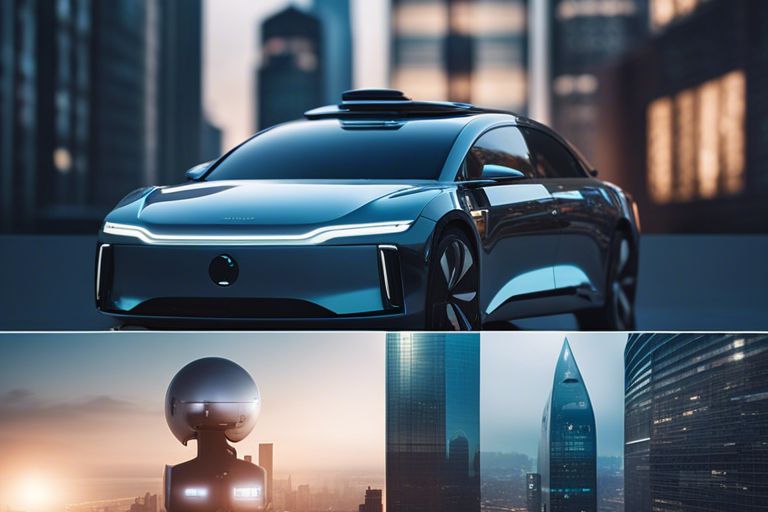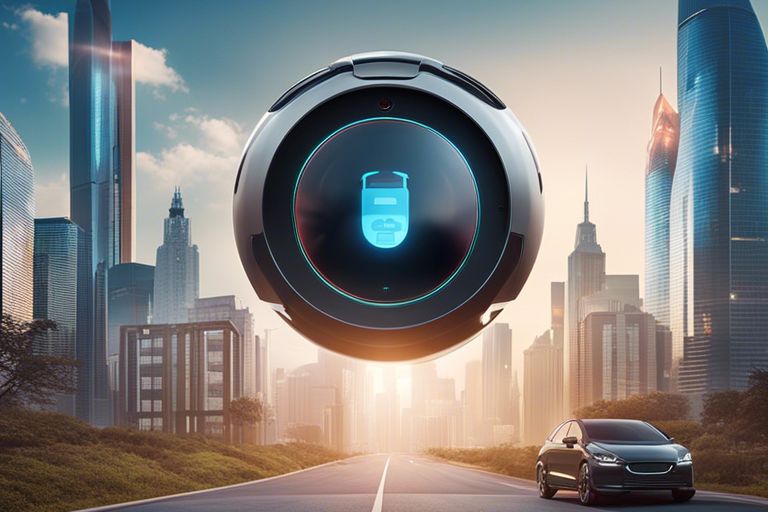Are You Utilizing Cutting-Edge IT Security Strategies For Maximum Protection?
Over recent years, the cyber threat landscape has evolved rapidly, making it crucial for organizations to utilize...

It’s undeniable that Artificial Intelligence (AI) has become a significant part of our daily lives, revolutionizing the way we live, work, and interact with the world around us. From virtual assistants like Siri and Alexa to personalized recommendations on Netflix and Amazon, AI is continuously evolving and impacting various aspects of society. However, as AI becomes more advanced, concerns about privacy, job displacement, and ethical implications also arise. This blog post will explore the benefits and challenges of AI in everyday life, highlighting how this technology is shaping our world in profound ways.
Any How Artificial Intelligence Is Impacting Our Everyday Lives, one of the most prominent areas where AI is making a tangible impact is in our homes. From managing daily tasks to enhancing entertainment experiences, artificial intelligence has become an integral part of modern households.
Devices such as smart thermostats, lights, security cameras, and virtual assistants have revolutionized the way we interact with our living spaces. These AI-powered gadgets can automate various functions, optimize energy consumption, and improve overall convenience and security in our homes. By learning our behaviors and preferences, smart home devices can create personalized experiences tailored to individual needs.
On a daily basis, personal assistants like Amazon’s Alexa, Apple’s Siri, and Google Assistant have become ubiquitous in households worldwide. These AI-powered assistants can answer questions, perform tasks like setting reminders or playing music, and even control other smart devices within the home. Furthermore, AI algorithms are being used to recommend movies, shows, and music based on users’ preferences, creating a more personalized entertainment experience.
A growing trend in the use of AI in entertainment is the development of virtual reality and augmented reality applications. These technologies are enhancing gaming experiences, creating immersive storytelling experiences, and revolutionizing how we consume content. As AI continues to evolve, the possibilities for integrating artificial intelligence into our entertainment routines are endless.

Some of the most significant impacts of artificial intelligence are felt in the workplace. As businesses embrace digital transformation, AI is revolutionizing how tasks are performed, decisions are made, and data is analyzed. From automating routine processes to enhancing decision-making capabilities, AI is reshaping the way we work.
With the introduction of AI-powered automation, organizations can streamline repetitive tasks, allowing employees to focus on more strategic and creative endeavors. This not only boosts efficiency but also improves job satisfaction by eliminating tedious work. AI-driven automation is particularly beneficial in industries like manufacturing, customer service, and data entry, where speed and accuracy are paramount.
Moreover, AI enables predictive analytics that forecast trends, optimize workflows, and minimize errors. By leveraging machine learning algorithms, businesses can increase productivity and reduce operational costs. While concerns about job displacement often arise with automation, the collaboration between humans and AI opens up new opportunities for upskilling and reskilling the workforce.
One area where AI excels is in decision-making and analytics. By analyzing vast amounts of data at unmatched speeds, AI systems can generate insights that aid in strategic planning and resource allocation. AI-powered analytics help organizations uncover patterns, trends, and correlations that might have otherwise gone unnoticed, leading to more informed decision-making processes.
Analytics play a crucial role in optimizing business operations, improving customer experience, and driving innovation. As AI continues to advance, its ability to process complex data sets and provide real-time insights will become even more invaluable in shaping the future of work.
Your health is one of the most crucial aspects of your life, and with the advancements in artificial intelligence (AI), healthcare is experiencing a transformation like never before. AI is revolutionizing the way we approach medical diagnosis, treatment, and management, leading to more efficient and effective healthcare services.
On the frontier of AI in healthcare are diagnostic tools and personalized medicine. AI algorithms are being developed to analyze patient data, including medical records, genetic information, and lifestyle factors, to provide more accurate and timely diagnoses. These tools can help healthcare providers identify diseases at an early stage, leading to better treatment outcomes and personalized care plans.
The integration of AI into healthcare management systems allows for more streamlined and efficient processes, ultimately improving patient care and outcomes. AI can help hospitals and clinics optimize their workflows, reduce administrative burdens, and enhance the overall quality of care provided to patients.
Diagnostic imaging is an area of healthcare where AI is making a significant impact. AI-powered algorithms can analyze medical images, such as X-rays, MRIs, and CT scans, to detect abnormalities and assist radiologists in making more accurate diagnoses. This not only speeds up the diagnostic process but also reduces the risk of human error.
With the potential to revolutionize healthcare delivery, AI in healthcare management is paving the way for more efficient, cost-effective, and patient-centric services. By automating routine tasks, improving data analysis, and enhancing decision-making processes, AI is reshaping the future of healthcare in remarkable ways.
Unlike any other technology, artificial intelligence (AI) is drastically transforming the way we navigate and plan our urban environments. In my blog post “The Rise of AI: How Artificial Intelligence is Changing Our…“, I probe into the impact of AI on transportation and urban planning.
One of the most revolutionary applications of AI in transportation is the development of autonomous vehicles. These self-driving cars are equipped with advanced sensors, cameras, and AI algorithms that enable them to navigate roads, interpret traffic signs, and react to various driving conditions. This innovation has the potential to significantly reduce accidents caused by human error, enhance traffic flow, and improve overall road safety. Furthermore, autonomous vehicles hold the promise of providing more inclusive mobility options for individuals with disabilities or those who cannot drive.
To optimize urban infrastructure and enhance sustainability, cities are increasingly adopting smart city technologies powered by AI. These innovations include intelligent traffic management systems, predictive maintenance of public utilities, and real-time data analytics for urban planning. Smart city technologies enable cities to operate more efficiently, reduce energy consumption, and enhance the quality of life for residents. By leveraging AI, cities can make data-driven decisions that lead to better resource management and more resilient infrastructure.
A key aspect of smart city technologies involves integrating IoT devices across urban areas to collect data on various aspects such as air quality, waste management, and energy consumption. This interconnected network allows for the optimization of resources, better decision-making, and proactive problem-solving in cities.

To truly understand the impact of AI in everyday life, one must consider the ethical implications and future trends associated with this rapidly evolving technology. As AI continues to integrate into various aspects of society, it is crucial to reflect on the ethical considerations and anticipate the future developments that will shape our world.
On the one hand, AI advancements have raised concerns about privacy as the collection and analysis of vast amounts of personal data become more prevalent. The use of AI in surveillance, targeted advertising, and data mining has sparked debates about the boundaries of privacy and the implications of constant monitoring. Additionally, the fear of AI replacing human jobs has led to apprehension about the future of employment. As AI becomes more sophisticated, there is a real possibility of certain jobs becoming obsolete, requiring a shift in the workforce and the need for new skill sets.
With the rapid pace of technological advancements, the future of AI holds exciting possibilities and challenges. Future developments in AI are expected to revolutionize sectors such as healthcare, transportation, and finance. AI technologies like machine learning, natural language processing, and robotics are paving the way for more efficient processes, personalized services, and innovative solutions. The integration of AI into various industries will continue to transform the way we live, work, and interact with technology.
Impactful technologies such as autonomous vehicles, virtual assistants, and personalized medicine are just a glimpse of what the future holds in terms of AI frontiers. As AI continues to evolve, researchers and developers are exploring new applications and pushing the boundaries of what is possible. The intersection of AI with other technologies like the Internet of Things (IoT) and blockchain is creating a new landscape of opportunities for innovation and growth.
With this in mind, it is clear that artificial intelligence has become an integral part of our daily lives and is significantly shaping the world around us. From voice assistants and personalized recommendations to healthcare advancements and autonomous vehicles, AI technology continues to revolutionize various industries and pave the way for a more efficient and innovative future. It is necessary for individuals to stay informed about AI developments and understand the potential impacts, both positive and negative, that this technology can have on society. By embracing AI responsibly and ethically, we can harness its full potential for the benefit of humanity.
A: Artificial Intelligence (AI) refers to the simulation of human intelligence processes by machines, especially computer systems. These processes include learning, reasoning, problem-solving, perception, and language understanding.
A: AI is increasingly integrated into our daily lives through various applications such as virtual assistants (e.g., Siri, Alexa), recommendation systems (e.g., Netflix, Amazon), autonomous vehicles, healthcare diagnostics, facial recognition technology, and more. AI is used to streamline tasks, improve efficiency, and enhance user experiences.
A: The benefits of AI in everyday life include increased convenience, personalized services, improved decision-making, enhanced productivity, and advancements in various fields. However, challenges such as data privacy concerns, job displacements due to automation, ethical implications, biases in algorithms, and potential security risks need to be addressed to ensure responsible and beneficial AI integration.
Over recent years, the cyber threat landscape has evolved rapidly, making it crucial for organizations to utilize...
Most businesses today face advanced and sophisticated cyber threats that can potentially jeopardize their data...